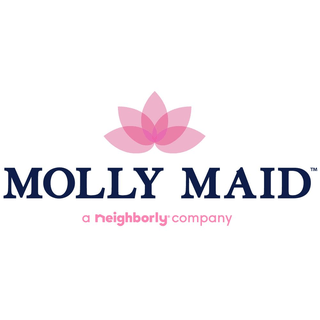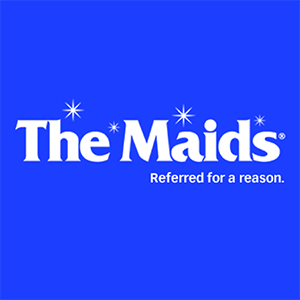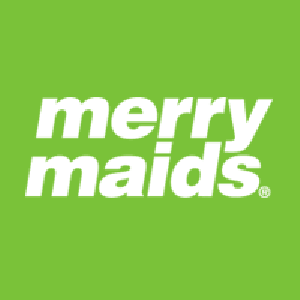Molly Maid Franchise in 2025: Costs, Fee & FDD
Explore the potential of investing in a Molly Maid franchise. With over 450 locations nationwide and a robust support system from Neighborly, Molly Maid offers a proven business model and steady revenue stream. Dive into our detailed analysis to see if this opportunity aligns with your investment goals.
Table of Contents:
Molly Maid is a leading residential cleaning franchise that has made its mark in the U.S. home services industry since it was introduced by David McKinnon in 1984. Originally a Canadian concept, McKinnon brought Molly Maid to Ann Arbor, Michigan, where it quickly gained traction, especially among busy families and professionals in need of a reliable, affordable cleaning solution. McKinnon’s vision was simple: offer consistent, professional cleaning services that make life easier for homeowners. His approach was so successful that he was inducted into the Entrepreneurship Hall of Fame in 2013, cementing Molly Maid’s reputation as a trusted name in home cleaning.
The core service of Molly Maid is residential cleaning, where they offer customizable cleaning plans tailored to individual needs, often on a weekly or bi-weekly schedule. Their services are backed by the Neighborly Done Right Promise™, ensuring that clients receive consistent, high-quality results. Molly Maid primarily caters to dual-income families and busy professionals—people juggling work, family commitments, and personal responsibilities who don’t have the time to maintain their homes. Their ancillary services may include specialized cleaning for events or move-ins/move-outs, appealing to homeowners looking for deep cleaning or temporary assistance.
As of today, Molly Maid operates over 450 franchise locations across the U.S., serving a loyal base of customers who account for 1.7 million cleaning services annually, with 90% being repeat business. The company’s consistent growth reflects its strong brand presence, with locations in various communities nationwide. Its franchise footprint speaks to its established position in the industry, offering peace of mind to thousands of homeowners each day.
Franchisees benefit from a robust support system that includes comprehensive training programs, operational support, and marketing assistance. Molly Maid’s franchise owners are guided through initial setup and ongoing operations, ensuring they can effectively manage their businesses while delivering the brand’s promise of quality service. With the backing of Neighborly, a parent company known for supporting a range of home service brands, Molly Maid franchisees have access to a proven model and strong network resources to succeed.
Molly Maid Franchise Insights
- Molly Maid has over 450 franchise locations across the U.S., serving a loyal customer base that generated 1.7 million cleaning services last year, 90% of which were repeat customers.
- The home cleaning industry is thriving, and Molly Maid taps into a growing market of dual-income families and busy professionals, with cleaning services often scheduled weekly or bi-weekly.
- Franchisees benefit from Molly Maid’s strong brand recognition, a proven business model, and support through the Neighborly Done Right Promise™ to ensure customer satisfaction.
- David McKinnon, the founder, was inducted into the Entrepreneurship Hall of Fame in 2013, highlighting Molly Maid’s long-standing success and leadership in the residential cleaning space.
Molly Maid Franchise Key indicators
Growth YOY (%)
-3%
vs industry 4%
Total U.S. Franchised Units
464
3-Year Failure Rate
13%
vs industry 13%
Sales-to-Investment ratio
2.9:1
How much does it cost to open a Molly Maid franchise?
Understanding the potential investment size and capital requirements is crucial when considering opening a Molly Maid franchise. These financial commitments, including initial franchise fees, equipment costs, and ongoing operational expenses, impact the feasibility and profitability of the venture. Thoroughly evaluating these factors ensures that potential franchisees are prepared for the financial responsibilities and can make informed decisions about their ability to sustain and grow the business, ultimately contributing to long-term success.
Min & Max Investment
Opening a Molly Maid franchise involves several key costs, which are outlined in Item 7 of the Franchise Disclosure Document (FDD). You can see a breakdown of the costs to open a Molly Maid below from the most recent Item 7 below:
| Type of Expenditure | Minimum Investment | Maximum Investment |
|---|---|---|
| Initial Franchise Fee | $14,900 | $14,900 |
| Territory Fee | $45,000 | $70,000 |
| Initial Startup Package | $7,000 | $8,000 |
| Software Enrollment and Training Fee | $1,500 | $1,500 |
| Auto Lease Deposit and Lease Expense | $3,900 | $5,500 |
| Computer Hardware | $2,200 | $4,500 |
| Leasehold Improvements | $1,000 | $5,000 |
| Real Estate, Utility Deposits and Three Months’ Rent | $4,000 | $7,000 |
| Furniture, Fixtures, and Equipment | $2,500 | $3,500 |
| Permits and Licenses | $100 | $1,000 |
| Insurance Deposit and Three Months Insurance Expense | $2,200 | $5,300 |
| Training Expenses for Travel, Food, and Lodging | $4,000 | $5,000 |
| Professional Fees | $0 | $5,000 |
| Additional Funds – 3 Months | $50,000 | $60,000 |
| TOTAL | $138,300 | $196,200 |
Item 7 in the Franchise Disclosure Document (FDD) is the “Estimated Initial Investment” section. It outlines the total costs a franchisee can expect to incur when starting a franchise, including the initial franchise fee, equipment, inventory, real estate, and other startup expenses. This section is crucial because it provides potential franchisees with a detailed understanding of the financial commitment required, helping them assess affordability and plan their investment strategy effectively.
Required Capital
To open a Molly Maid franchise or a similar residential cleaning business, potential franchisees need to consider several key financial requirements beyond the franchise fee. Here’s a breakdown of the estimated capital, liquid assets, and net worth required to get started:
- Initial Capital Investment The total investment required for Molly Maid ranges between $138,000 and $196,000. This includes costs for equipment, vehicles, marketing, and initial working capital to cover expenses during the startup phase. Assuming that you will finance your franchise investment, you should plan to have 20% of the total investment amount in the form of equity (cash) for the investment.
- Liquid Assets Requirement Most franchises in the residential cleaning industry, including Molly Maid, typically require franchisees to have liquid assets ranging from $50,000 to $75,000. These funds help cover the upfront costs and provide a financial cushion in the early stages of operation.
- Net Worth Requirement To ensure financial stability, many franchise systems expect prospective owners to have a net worth between $150,000 and $250,000. This demonstrates the ability to handle the financial responsibilities of running the business, including managing payroll and operational costs.
How much does a Molly Maid franchise owner make?
Calculating the salary of a Molly Maid franchise owner involves analyzing gross sales to determine total revenue, assessing operational efficiency to understand profit margins, and accounting for franchisor fees and additional expenses such as rent, utilities, and payroll. Effective management of these factors can significantly impact the profitability and financial success of a Molly Maid franchise owner. This comprehensive financial analysis helps estimate net profits, from which the owner’s salary can be derived. A clear understanding of these factors ensures accurate salary projections and financial planning for sustainable business operations.
Molly Maid Revenue & Gross Sales
Molly Maid’s recent revenue performance has been strong, with the median gross sales for franchise locations reaching around $492,547. This figure reflects the brand’s consistency in delivering reliable cleaning services to its loyal customer base. With 90% of their 1.7 million annual cleaning services coming from repeat customers, Molly Maid’s revenue model benefits from a stable, recurring income stream, making it a promising franchise for potential investors.
Which key factors impact the average revenue performance of Molly Maid franchisees?
Several factors likely contribute to the strong performance of U.S. Molly Maid franchisees. First, the brand’s well-established reputation for quality and reliability drives a loyal customer base, leading to consistent repeat business. Molly Maid also benefits from the growing demand for residential cleaning services, especially among dual-income families and busy professionals who rely on regular, professional cleanings. Additionally, the franchise’s customizable service offerings allow customers to tailor cleanings to their specific needs, enhancing customer satisfaction. The comprehensive franchisee support system, including marketing assistance and operational guidance, helps ensure franchise owners can efficiently run their businesses and meet market demands.
Molly Maid Franchise Operational Costs
When opening a Molly Maid franchise, it’s important to account for the key operational costs that will impact your day-to-day business. These expenses are critical to keeping the business running smoothly and ensuring customer satisfaction. Here are some of the primary ongoing operational costs to consider:
- Staffing and Payroll Your cleaning crew is essential to your success, and wages will likely be one of your largest ongoing costs.
- Cleaning Supplies and Equipment Regularly purchasing cleaning products and maintaining or replacing equipment is crucial to delivering high-quality service.
- Vehicle Maintenance and Fuel As a mobile service, maintaining a fleet of branded vehicles and covering fuel costs will be an ongoing expense.
- Insurance You’ll need both general liability and workers’ compensation insurance to protect your business and employees.
Keeping these operational costs in check is essential to maintaining profitability while delivering the high standards Molly Maid customers expect.
Molly Maid Franchise Fees
When opening a Molly Maid franchise, it’s crucial to understand the various ongoing fees that will impact your financial planning and overall profitability. These fees are designed to support the brand, provide necessary services, and maintain a high standard across all franchise locations. Below are the key fees you’ll need to consider:
- License Fee Ranging from 3% to 6.5% of your gross sales (excluding “roll-in” sales), this fee is due weekly. It helps cover the cost of using the Molly Maid brand and its proven business model. Additionally, minimum license fees apply, ensuring each franchise contributes regardless of revenue fluctuations.
- MAP Contribution Currently set at 2% of gross sales, this fee supports the Molly Maid Marketing Assistance Program (MAP). The contribution amount is voted on by the franchise system every two years, ensuring marketing efforts stay competitive and effective in promoting the brand.
- Additional Fees There are additional fees for training programs, technology, and other items provided by Molly Maid that may be applied.
By understanding these fees and incorporating them into your financial planning, you can better prepare for the costs of running a successful Molly Maid franchise while benefiting from the support of a strong franchise system.
Molly Maid Franchise Earnings
The earnings of a Molly Maid franchise owner can vary based on several factors such as location, customer base, and operational efficiency. For owner-operators who are actively involved in the day-to-day management of the business, the potential for earnings can be quite strong. With median gross sales of approximately $492,547, owner-operators can expect estimated earnings of around $89,000, representing an operating profit margin of 18%.
Hands-on involvement by franchise owners can lead to better cost management and operational efficiency, resulting in higher profitability. These figures demonstrate that Molly Maid can be a profitable investment for those committed to running their business efficiently and maintaining a high level of service. With a stable, recurring customer base, owner-operators have the potential to increase earnings as the business continues to grow.
How to Open a Molly Maid Franchise
Becoming a Molly Maid franchisee involves several key steps, each designed to ensure you’re well-prepared to operate your business successfully. From the initial inquiry to launching operations, here’s an overview of the process:
- Initial Inquiry You or your franchise specialist submits an initial inquiry basic information about your interest and background. You should also conduct thorough research on the franchise, including seeing all of the information available on the Vetted Biz franchise intelligence platform, including access to the most recent Franchise Disclosure Document (FDD).
- Pre-Qualification After submitting your application, you’ll go through a financial pre-qualification process. This helps determine if you meet the financial requirements, such as net worth and liquid assets, to move forward.
- Discovery Day This is an in-person or virtual visit to Molly Maid’s headquarters, where you’ll meet the leadership team, learn more about daily operations, and get a better understanding of the franchise culture.
- Franchise Agreement Once both parties are satisfied, you’ll sign the franchise agreement, officially granting you the rights to operate your Molly Maid business.
- Initial Training You’ll undergo extensive training that covers everything from operations to marketing. Molly Maid provides comprehensive support to ensure you’re ready to run your franchise smoothly.
- Site Selection and Set-Up You’ll work with Molly Maid’s support team to set up your office location, hire staff, and prepare vehicles, equipment, and other operational elements for your business.
- Grand Opening Once everything is in place, you’ll launch your franchise with a grand opening event, supported by marketing and local promotions to attract initial customers.
Pros & Cons
Pros
Established Brand Recognition: Molly Maid has been in the industry since 1984, giving it a trusted name and reputation that attracts repeat customers.
Recurring Revenue: With 90% of services coming from repeat clients, franchisees benefit from a steady, predictable revenue stream.
Growing Demand: The increasing need for residential cleaning services, especially among busy professionals and families, offers a strong market potential.
Flexible Business Model: Franchisees can tailor services to meet specific client needs, offering flexibility in operations and customer engagement.
Cons
Labor-Intensive: Managing cleaning staff and ensuring high service standards can be demanding, requiring strong organizational and leadership skills.
Competitive Market: The residential cleaning industry is competitive, with numerous other local and national brands, requiring consistent effort to stand out.
Economic Sensitivity: Residential cleaning services can be considered a luxury for some households, and demand may fluctuate during economic downturns or periods of financial uncertainty.





